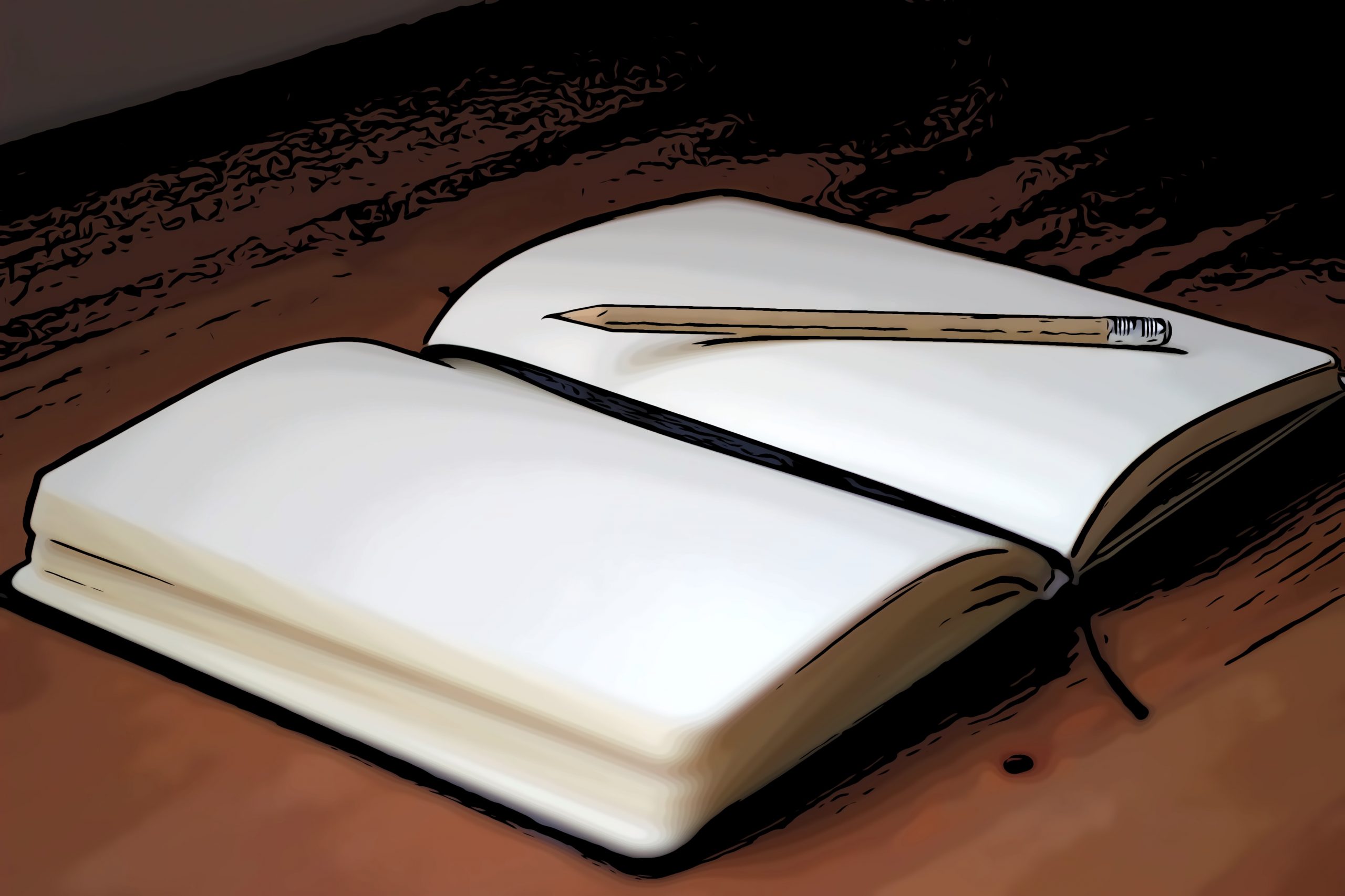After decades of procrastination, I had more than fifty half-baked ideas for novels floating around in my head (and on my hard drive). Once I decided to put my head down and actually write book-length fiction, I faced a tough choice. Which of my half-hundred novel ideas should I choose for this project?
Or, in other words, of the novels I could write … which was the novel I should write?
Some Really Lame Advice
So, as any good citizen of the 21st century would, I asked Google, “How do I choose which novel to write?”
Far too many articles answer this question with variations on a single lame theme: “Follow your heart!” Fact is, if you’re asking Google which novel to start writing, you’re not getting enough feedback from your heart to pick a novel to write in the first place.
Some Better Advice
Three articles, though, did prove useful. Because I remixed ideas from these to inform my own approach, I’ll list them here as a way of saying thanks and to point you to the best of the lot.
Heads or Tails? Choosing What Story Idea to Work on Next
How to Decide Which Story Idea to Write Next
7 Ways to Decide Which Story Idea You Should Write Next
Building My Own System For Picking Novels to Write
Identifying Meaningful Metrics
As I read the articles above, I took notes in Obsidian, an amazing thought processor (or “Personal Knowledge Manager” or PKM). From those literature notes (summaries of the author’s ideas, restated in my own words) and my own fleeting notes (ideas I had or connections I made while reading), I came up with a list of six questions to ask myself, phrasing them so I could answer each on a scale from 1 to 5:
- How much will writing this book help you grow as a writer? (A score of one would mean the work would be very easy, versus a score of five, indicating a level of complexity that would be a stretch, given my skills and experience. Because I wanted a growth experience, I set up the scale to favor novels that would be a bit of a stretch, given a self-assessment of my own skills.)
- How simple is the narrative? (A score of one would mean the novel was complicated, with multiple story lines and points of view, while a five would indicate a more simple narrative with one point of view throughout. Since this was a first novel, I set up the scale to assign the larger value to simplicity.)
- How well does this project fit into my big-picture goals? (A score of one would mean the project had little perceived potential to help me generate a revenue stream from fiction writing, while a score of five would mean the project had great potential to do so.)
- How fleshed out is the idea already? (A score of one would mean the project was little more than an unpopped kernel of an idea, while a score of five would mean the plot was already well-developed in my head.)
- How original and exciting is the concept to you? (A score of one would mean the plot line felt a little familiar or recycled, while a score of five would mean the plot line felt innovative and personally engaging.)
- How comfortable would you be with this book being the one book you published before you died? As someone in the autumn of his life, this question, borrowed from Savannah Gilbo, moved me deeply. (A score of one would mean the book wouldn’t make for an appealing legacy, while a score of five would mean I’d be proud for this to be the only book I ever finished.)
Listing Viable Options
Back in Obsidian, I made a bulleted list of every single novel idea. With this list in place, I went back and highlighted the ideas that felt more mature, better fleshed-out, or more appealing to me than the others. This narrowed my list down to twelve possible projects.
The list included the first installment of a spooky detective series, a science-fiction epic, a thriller with a time-traveling twist, the alien invasion of a small town, a metaphorical tale about the dangers of religion, a fantasy novel set in a uniquely limited location, a quirky gay-interest comedy, a science-fiction take on the evangelical obsession with The Rapture, a magical reality story about coming to terms with roads not taken, a romantic thriller set in the Iron Age, and others.
Scoring the Options
Being a total nerd, I then took my six metrics and my twelve possible projects and arranged them in a spreadsheet. For each work, I answered each of my six questions, assigning values from one to five. Adding all scores assigned to a given work together, I came up with an “Selection Index” — a total score designed to draw my attention to the most viable novel candidate. The higher the score on the Selection Index, the more likely a project was to be “The One.”
So … What Happened?
I was surprised that “a magical reality story about coming to terms with roads not taken” scored highest, with 29 out of a possible 30 points. Frankly? This is not the story I would have chosen had I “followed my heart” or picked the tale I had the most generalized enthusiasm for.
But, in the end, I did see the wisdom of this choice. The structure for this novel — now titled Parallel Lines — was pretty firmly established in my head. It featured characters I was fond of in a story world I was excited about exploring. It addresses themes I’m passionate about, is rooted in observations about life that I feel well-qualified to make, and provides insights into its theme that I believe will resonate with others. It’s also a straight-forward tale: a linear story told from one point of view.
I had expected the spooky detective series to win — but, in retrospect, understand that a series is a big obligation. I like the idea that, when I do get around to writing that series, it will be stronger as a result of my having written other novels.
One thing I learned: while Parallel Lines won with a score of 29/30, second place ended up being a tie among three projects with a Selection Index of 28. On the one hand, that’s good news: when Parallel Lines is done, I’ll have three very appealing potential second novels to choose from. On the other, the fact that three scores were identical … and that the third place award was also a three-way tie … suggests I might need to tweak my scoring system. (Very likely, this involves using a broader scale — from one to ten, perhaps? — or identifying additional metrics, or both.)
PS: When this article was originally posted, I was about 25% through drafting Parallel Lines, which I chose to write “out loud” — in public, in real time, publishing a 1400-word chapter a day, six days a week, until the novel was finished. I also chose to write and publish the book online using Obsidian.md and the quick-and-easy Obsidian Publish service. I finished that book, which became the #1 new release on Amazon’s LGBTQ+ science fiction charts. You can see sample chapters and more here.
Advice
A novel’s a big project. Writing a novel requires a substantial investment of your time, energy, and attention. Before you “follow your heart” and jump into writing, figuring out the project that offers you the best combination of creativity, practicality, and suitability makes good sense.
Find this system helpful? Steal it. And then, based on what you learn, adapt it and make it your own. The goal isn’t to slavishly follow the path I took, but to try, observe, and tweak, incorporating what you learn along the way — and develop the system that works best for you.
If this advice proves more helpful to you than “follow your heart,” please let me know with a tweet (I’m @markmcelroy on Twitter) or a quick note to mark@markmcelroy.com.
Photo Credit: Patrick Perkins, via Unsplash







